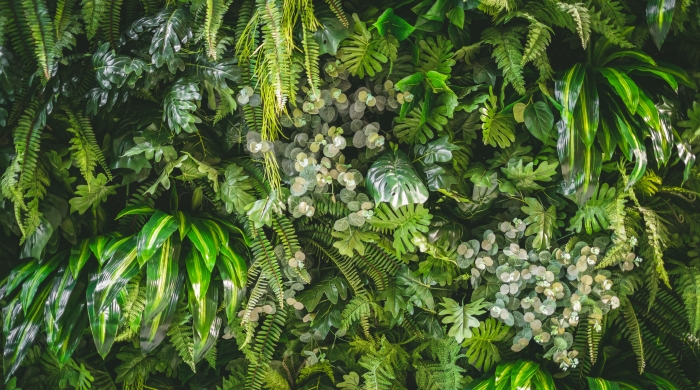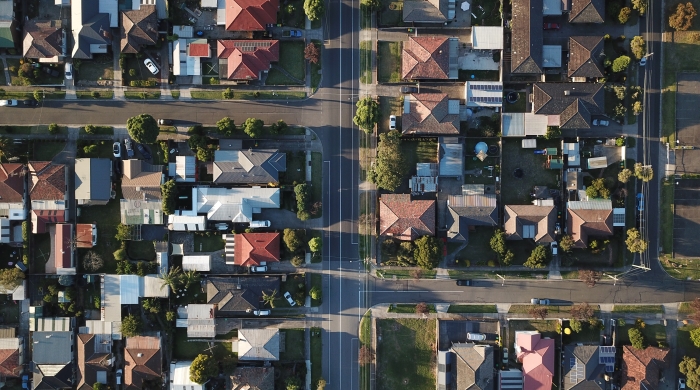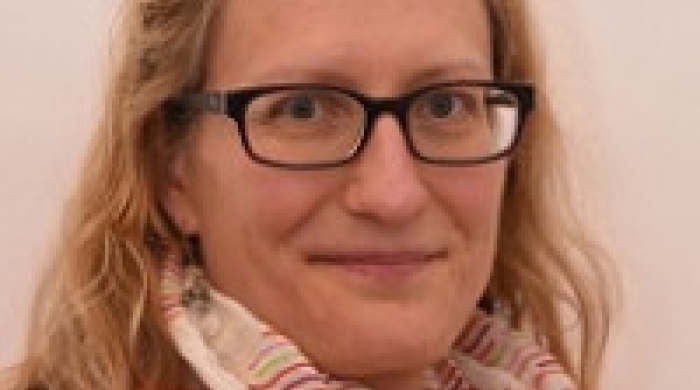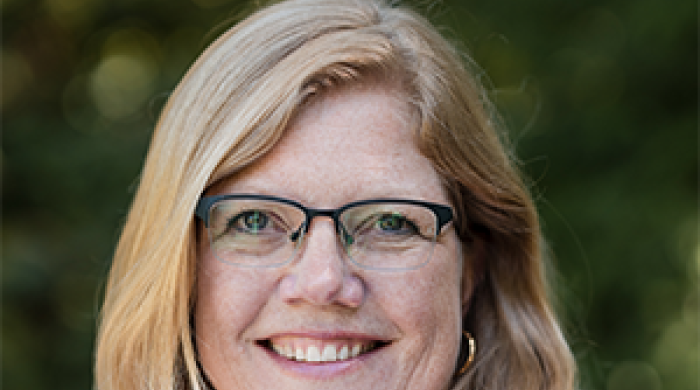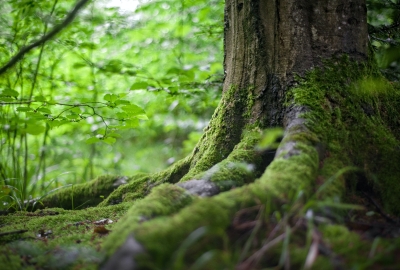
IHDSC reached out to some of our recent Seed Award recipients to ask about their experience with the program. Responses have been edited for clarity and length.
What inspired you to apply for the IHDSC Seed Award Program?
Rezarta Bilali (2020 Recipient, NYU Steinhardt): Much of my work has been international, focusing on historical narrative, intergroup conflict, and social change. The seed grant gave me the opportunity to start extending my work to the issues of inequality, collective action, and social change in the United States.
Maaike Bouwmeester (2019 Recipient, NYU Steinhardt): I was just starting out in academic research as a full time faculty member and the Seed Award really helped me kick start that journey-- I feel lucky to have received wonderful support and appreciate IHDSC values around research-practice partnerships and community oriented research.
Anil Chacko (2019 Recipient, NYU Steinhardt): Obtaining pilot data is essential for submitting a successful proposal for larger grant funding. The IHDSC Seed Award allowed me the support necessary to continue to leverage resources and collaborations to gather more data, extend and deepen my relationships with my community partners.
Jessica Gladstone (2021 Recipient, NYU Arts & Science): We really liked that IHDSC had a focus on education and child development and a focus on race, poverty and inequality. We felt our project closely aligned with the goals of IHDSC for these two focal areas.
Susannah Levi (2019 Recipient, NYU Steinhardt): I was interested in taking my research in a new direction and knew that I would need some pilot data to get an external grant. Writing up the proposal (and getting the seed award) was useful because it made me have to put all the ideas and methods on paper.
R. L'Heureux Lewis-McCoy (2020 Recipient, NYU Steinhardt): Dr. Kimberley Johnson (Co-PI, NYU Arts & Sciences) and I were thinking about the importance of studying Black suburbs as a spatial and political entity but found very little written on them. Despite the number of suburban Black residents increasing decade over decade and the same for Black suburbs, there were silences on how they managed schools, balanced budgets, planned for their future, and attracted residents. Our project hopes to fill in those gaps in our understanding.
Luis Rodriguez (2020 Recipient, NYU Steinhardt): The Seed Award provided me a great opportunity as a junior faculty member to launch a new collaborative project on a larger and swifter scale than I would otherwise have been able to without financial support.
Antje von Suchodoletz (2021 Recipient, NYU Abu Dhabi): The IHDSC Seed Award Program provides an opportunity to develop new research ideas and new collaborations with scholars outside your field. In our case, we are a team of psychologists and economists. We believe that it will be the combination of both perspectives that will help us better understand the short-term and long-term impacts of the global health crisis.
William Tsai (2019 and 2021 Recipient, NYU Steinhardt): The potential opportunity to examine new ideas with new research collaborators and community partners with the IHDSC seed award is too good to pass up!
Richard Welsh (2020 Recipient, NYU Steinhardt): The inspiration to apply for the IHDSC Seed Award was twofold: the rigor and quality of the projects of prior awardees; and the desire to collaborate with other faculty to develop new lines of interdisciplinary research.
What has grown out of your Seed Award?
Rezarta Bilali: We have written one paper that is now under review, funded by the Seed Award. We have conducted pilot studies that we are using now to seek further external funds. For example, we used the Seed Award to develop a Spencer Grant, which we were awarded. We are also considering other external funding sources.
Andrei Cimpian (2021 Recipient, NYU Arts & Science): The Seed Award allowed us to pursue a project using a methodology we'd never used before in our lab: content analysis. We're analyzing the content of biographies of famous scientists written for children in order to understand what motivation-relevant messages are being conveyed in them. These books are often intended to inspire young children (especially girls and children from racial/ethnic minority groups) to pursue science, but some of the messages they send may backfire. For instance, the image of scientists as being innately gifted, which suggests that the ability to do science is a fixed trait that only some people have, may actually discourage children rather than inspire them. We are finding that authors feel more of a need to explain why a scientist of color was successful, whereas White scientists’ success is expected and thus needs less explanation. We also observed that male scientists’ STEM interest is portrayed as less malleable than female scientists’ interest, consistent with stereotypes portraying STEM as a masculine domain.
Anil Chacko: We have developed a greater understanding of the issues that the population we serve and how these communities are impacted by changes in policy and practices at the state level and the urgency for the work that we are advancing to translate into policy changes. The pandemic had a significant and disproportionate impact on the most vulnerable families in the city, the need for support for parents grew while budget cuts left many family-facing community organizations, including our community partners, in a tenuous situation. The Seed Award allowed us the opportunity to connect around these issues with our community partners and identify what else needs to be studied and advanced in our partnership so that we are more responsive to the families that we all aim to serve.
Stephanie Cook (2020 Recipient, NYU Global Public Health): This seed award helped me become integrated with new community partners and has led to a larger application.
Susannah Levi: I began data collection in Fall 2019, and we collected data through January 2020. We had a pause in data collection and then COVID-19 hit and we had to shift our research to online data collection. We ended up asking a slightly different question but one that I think will lay the foundation for other research.
R. L'Heureux Lewis-McCoy: Most immediately, the Seed Award has grown into two publications: one under review and another under development. We are working with IHDSC to locate appropriate funders to launch a national multi-method survey of Black suburbs. In 1970, only 81 Black suburbs existed, making up only 2% of all suburbs. However, Black suburbs have increased steadily over time, both in raw number and in proportion of suburbs until a plateau after 2010. In 2018, we identified 413 Black suburbs, representing 5% of all suburbs and a five-fold increase since 1970.
Sudha Arunachalam (2020 Recipient, NYU Steinhardt): Our participants (citizen scientists) got even more engaged than I hoped! They loved putting together their own research study and some of them got really into making graphs and planning future studies.
Luis Rodriguez: Through parent interviews and testimonials we have begun to gain a better understanding that students are not only inequitably exposed to formal exclusionary disciplinary practices, like suspensions, but also informal exclusionary discipline practices, such as timeouts or denial of breaks/snack time. As we wrap up our Seed Award, we have already submitted external grant proposals to extend our work. We wish to continue to engage with parents to learn more about their perspectives and experiences interacting with educators and schools on student disciplinary and behavioral issues. We would also like to interview school staff to try to triangulate our findings from their perspectives.
Antje von Suchodoletz: We are currently developing an idea for an intervention applying behavioral economics theory, i.e., nudging parents to shift the allocation of their children’s time such that they spend more time on educational activities and less time on participation in work. In rural Pakistan, where the majority of child laborers work in agriculture, children’s work participation is especially pronounced during the crop sowing seasons, called Kharif and Rabi. The displacement of schooling for work during these periods is a recurring disruption to children’s education with a heightened risk of children’s absence from school and ultimately dropout.In a future project for which we will apply for new grants, we aim to test the effectiveness of nudging parents to shift the allocation of their children’s time marginally but progressively during the Kharif and Rabi seasons.
Richard Welsh: The findings to date illuminate some of the complexities undergirding the relationship between school discipline and neighborhoods. It is likely bi-directional - neighborhoods shape suspensions in schools and suspensions in schools shape crime in neighborhoods. The ongoing analyses support the adoption of a socioecological lens to understanding and transforming disparities in discipline. The Seed Award is still blossoming, but thus far has led to a new area of research, grant applications, and several studies under peer review or in development.
How did your relationship with your external partners develop?
Anil Chacko: My relationship with my community partners deepened. The Seed Award was a signal to my community partner that we were invested in the collaboration and wanted to be partners over the long-haul (it's been an 8 year relationship and growing stronger). The more consistent contact afforded through the Seed Award allowed us to start considering other research/service questions that we are now trying to move forward.
Stephanie Cook: The preparation for this grant was a year in the making, because you have to find the right community partners who are on board with your vision and understand what you want to do and that will really want to partner with you as opposed to just being a consultant, which is also okay. However, for this vision, there is a need to create something that we can immediately take to the field that's immediately scalable. It was really important to work with partners such as Healthy Minds Innovations that were on board with this vision. They run the Healthy Minds app, which is mindfulness-based and backed by rigorous scientific research. We worked with their engineer on the project to come up with the meditations in the app. It was truly a partnership, and we plan to put in a bigger grant together as partners. They’re wonderful people, and they’re invested in the vision.
Antje von Suchodoletz: We currently work with an in-country research partner in Pakistan, an institute that is widely recognized and highly considered in the country for its professional research support services. For the intervention project that we currently develop, the in-country research partner will be involved in all stages of the research process (research design, implementation and dissemination) to ensure that the intervention is developed and delivered in culturally responsive and sustainable ways.
William Tsai: The IHDSC Seed Award gave us the opportunity to form a strong working relationship with our community partner, Chinese-American Family Alliance for Mental Health (CAFAMH). It’s been a pleasure working with CAFAMH, not just because they have provided us with a way to recruit Chinese immigrant parents in NYC for our study, but because we have also learned new ways of working with the Chinese community. Through them we also have a way to truly conduct community-engaged research and give back to the community by offering workshops and lectures. Because of our partnership with CAFAMH, we were also able to build new relationships with other Chinese-serving community organizations, such as with the Charles B. Wang Community Health Center and the Chinese Planning Council.
What was your favorite part of being a Seed Award recipient?
Sudha Arunachalam: I appreciated the opportunity to experiment with something totally new and take risks.
Rezarta Bilali: First, the ability to extend my research in the United States. Second, working with the IHSDC staff.
Maaike Bouwmeester: The Seed Award was my stepping stone that made it possible to work towards bigger goals, not to mention the great people and community I encountered along the way!
Anil Chacko: It's all about the relationships and the thoughtful conversations that occur between myself and my community partners but also between myself and the IHDSC folks who are a very supportive, thoughtful, resourceful group.
Andrei Cimpian: It was amazing to receive the resources to begin research on an important idea that would have been considered too "risky" at other agencies, at least at this early stage. Connecting with other recipients and hearing about the amazing diversity of projects being supported through Seed Awards was a nice perk as well!
Stephanie Cook: Being part of the IHDSC family has been invaluable.
Susannah Levi: Having money to pay research participants and research assistants is critical for the type of research I do. Having the seed award meant that I could advertise a position and rely on a couple of excellent research assistants to help with the study.
R. L'Heureux Lewis-McCoy: The ability to work across disciplines and with talented graduate students like Kiara Douds who have helped us shore up the empirical and intellectual contributions of these future surveys.
Luis Rodriguez: My favorite part of the program was being able to develop a relationship with IHDSC and have access to its team for grant support.
Antje von Suchodoletz: My favorite part of being a Seed Award recipient is being able to collaborate with colleagues on an exciting project, which I would not have been able to do without the Seed funding.
William Tsai: The fact that the new relationships with collaborators and community partners from the IHDSC Seed Award study will continue to be there even after the project ends.
Richard Welsh: My favorite part of being a Seed Award recipient is having access to the wonderful staff and community at IHDSC who have positively contributed to my scholarly development.
What advice do you have for someone applying for an IHDSC Seed Award?
Rezarta Bilali: The IHDSC Seed Award is a great opportunity to extend research in a different direction, do pilot work needed for external grants, and build new relationships with community partners. If any of these is relevant for you, take advantage of this great opportunity!
Maaike Bouwmeester: For those applying, start small but aim high!
Anil Chacko: Apply! It's an easy process and regardless of the outcome, you get great feedback and support and develop relationships with IHDSC.
Susannah Levi: Push yourself in a new direction!
R. L'Heureux Lewis-McCoy: The Seed Award program provides you flexibility in terms of budget and expertise in terms of collaborations from technical to financial goals. Apply with an innovative idea that may not fit neatly in a singular department or field, but if actualized could help mark new space for study and address inequality.
Luis Rodriguez: I would encourage applicants to meet with the IHDSC directors before applying; from my experience, doing so was informative as we considered how to best tailor and make the case for a project that aligns with the priorities of IHDSC.
Antje von Suchodoletz: Engage with researchers outside your field, and use the IHDSC Seed Award to try something new that you would not be doing with your existing network of collaborators.
William Tsai: Even if you don’t have a fully-baked idea or a fully-established community partnership, just give it a try and see where it goes!
Richard Welsh: Apply! It is a worthwhile and meaningful experience.
Apply for the IHDSC Seed Award
Seed Award Stories
Luis A. Rodriguez Selected as a 2023 National Academy of Education/Spencer Postdoctoral Fellow
We are pleased to announce that Dr. Luis A. Rodriguez, Assistant Professor of Education Leadership and Policy Studies in the Department of Administration, Leadership, and Technology, has been selected as a recipient of the 2023 National Academy of Education/Spencer Postdoctoral Fellowship!
Q&A: Dr. William Tsai
Dr. William Tsai (NYU Steinhardt) is a two-time IHDSC Seed Award recipient. On the Ground interviewed him to spotlight his 2019 project, “Helping Oneself by Helping Others: Testing the Feasibility of a Narrative Intervention for Chinese American Cancer Survivors.”
Q&A: Dr. Stephanie Cook
Dr. Stephanie Cook (NYU School of Global Public Health) spoke with On the Ground about her 2020 Seed Award project, “Optimizing a Daily Mindfulness Intervention to Reduce Stress from Discrimination among Sexual and Gender Minorities of Color.”
The State of Black Suburbs
"For many folks, when I start to talk about the Black suburban experience, they think that it's this moment of meeting of white and Black, of distance coming together. But there's a far more nuanced and complicated reality." Drs. L'Heureux Lewis-McCoy and Kimberley Johnson received seed award funding for "The Black Suburban Governance Project" in 2020. Along with PhD candidate Kiara Douds, they discussed their research approach and early findings.
Seed Award Spotlight: Dr. Susannah Levi
In 2019, Drs. Susannah Levi and Daphna Harel received a seed award for their project, "High Variability Phonetic Training as a Mechanism for Improving Underlying Reading Skills in School-Age Children." Read about what came from the project, how COVID-19 impacted research, and what else might grow out of their seed award.
Seed Award Spotlight: Drs. Maaike Bouwmeester and Shilpa Sahay
Drs. Maaike Bouwmeester and Camilla Matuk received seed funding for their project, "Designing Frameworks for Multimedia Use in Informal STEM Programs for Young Learners." Dr. Bouwmeester and collaborator Dr. Shilpa Sahay discussed their nonprofit partnership and how their seed award served as a springboard for future research.


